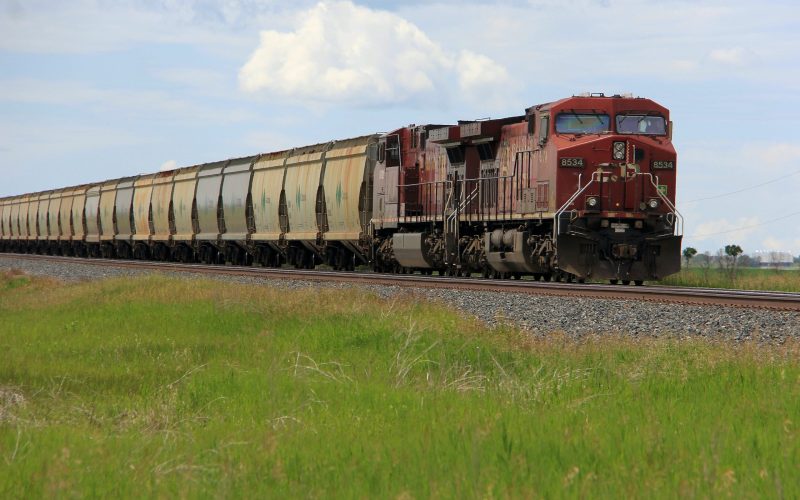- Lithuania’s sanctions on Belarus came into effect on 7 February, stopping the transit of Belarus’ potash through their territory to the port of Klaipeda for export.
- Belarus’ solution is to redirect products to Russian ports.
- Given the growing strength of the Russian–Belarusian relationship, it brings into question the effectiveness of the West’s continued tactic of economically isolating Belarus.
On 7 February, the familiar sight of seemingly endless freight trains carrying huge hauls of reddish-brown potash to the Baltic port of Klaipeda became no more.
Recently, the Lithuanian government halted the transportation of Belarusian potash across its territory, stopping decades of its export from Klaipeda to the rest of Europe.
This is one in a long series of restrictions placed on Belarus by the EU and U.S. in their efforts to counter President Lukashenko’s regime. While these actions have been encouraged by Lukashenko’s opponents, there are concerns that this further act of economic isolation is inadvertently pushing Belarus, and its precious mineral resources, into the arms of its eastern neighbor, Russia.
The significance of potash in industrial manufacture has been known globally for hundreds of years, but its value today lies in its role as a central ingredient in agricultural fertilizer. Prized by all nations as an essential resource for maintaining food security, commentators have emphasized that whoever controls potash supply essentially also controls the global food supply.
Russia and Belarus currently supply over 40% of the world’s potash, making them essential to humanity’s food security. However, the EU, U.K. and U.S. sanctions and Lithuania’s recent restrictions on Belarus have culminated in an opportunity for Russia to gain major control of the Belarusian supply and therefore dominate the global market.
Instead of the West’s achieving its aims of a change in Belarus’ regime, the sanctions have created the ideal climate for Russia to gain great economic and geopolitical power.
In fact, the Prime Minister of Belarus Roman Golovchenko announced on 1 February that Belarus’ products will be diverted to Russian ports by Russian trains, consisting of potash supplies estimated by Reuters to be worth over $1 billion that previously moved through Klaipeda.
This simply becomes another win for Russia, as it gains an increased majority hold over a globally essential and sought-after product. Lithuania, an EU and NATO member, is the ultimate loser as the nation loses at least hundreds of millions of dollars of revenue by halting transport and exports and losing its foothold in the global food production chain.
In addition to Lithuania’s ban, Yara, a partly state-owned Norwegian company and the biggest European customer of the Belarusian potash industry giant Belaruskali has been phasing out all purchases from Belaruskali since 10 January and will entirely stop buying by 1 April.
This supply and revenue will also only be redirected to Belarus’ more willing allies, such as Russia.
Thus, the reasoning behind the Western sanctions on Belarus appear highly flawed, its continued implementation only serving to damage EU, U.K. and U.S. interests.
The U.S. Treasury has defended its decision and emphasized that its sanctions do not apply to foreign entities, but their “risk-based approach” to compliance has ultimately had a significant, negative impact on international parties.
The sanction-induced conditions have allowed Belarus and Russia’s relationship to develop and flourish, with increased Russian monetary and military presence and involvement in the former. As the threat of a Russian invasion of Ukraine looms, the Lithuanian government’s well-intentioned ban has actually worsened the situation for Western nations.
With Russian troops already scheduled to be stationed in Belarus for joint military exercises, Russia gains an ideal point of entry via the Belarusian–Ukrainian border. This view of Russia gaining yet another advantage has been reinforced by Algis Latakas, the director of the Klaipeda port stating that “Russia is applauding” Lithuania’s transit ban.
As Belarus has been Russia’s top competitor for export markets for years, the ban presents the perfect opportunity for Russia to make its move and finally gain control.
The benefit Russia seeks to gain from continued sanctions on Belarus becomes even more substantial as it is reported that Dmitry Mazepin, a key figure of the main Russian potash producer Uralkali, is said to have funded social media activity to encourage sanctions on Belarus.
Uralkali’s chairman and Kremlin ally Servey Chemezov is, ironically, also on the U.S. sanctions list himself, showing the inconsistency and flawed logic of the current policy.
Now Russia has gained major leverage over Belaruskali, it stands to gain access to nearly 20% of the global potash supply, thus increasing its potash resources to a massive 40% of the global supply.
Russia’s present situation places it in an extremely strong position to achieve a strategic stranglehold not only over the global potash market, but also global food resources. Russia is the third-largest producer of wheat in the world, and their new, nearly unimpeded access and control of an abundance of the world’s potash fertilizer will provide the country another avenue of global influence.
Ultimately, Lukashenko remains in power and his regime will continue to reap the benefits of potash-export revenue, Putin will gain even stronger control over global supply chains and gain a new ally, and Lithuanian businesses and economy will suffer large losses. The rest of the world also faces increased prices by cutting themselves off from one of the world’s largest potash producers.
Continued sanctions on Belarus by Western nations have clearly not worked in this case, and the country’s further economic isolation will only serve to push the rest of the world into a greatly disadvantaged and uncertain position.
Source – https://euthinktank.com/sanctions-on-belarus-a-geopolitical-and-economic-cause-for-concern/









